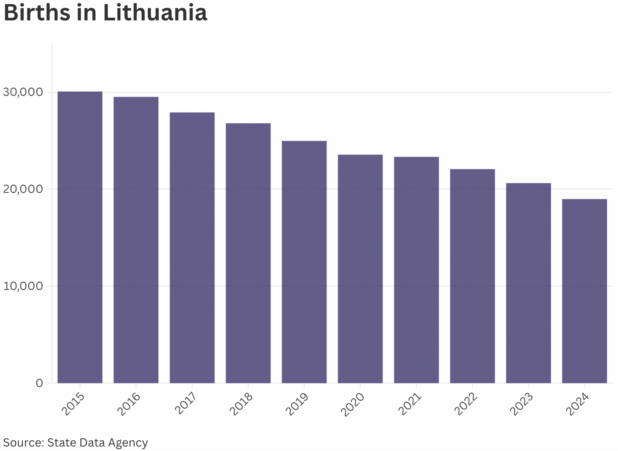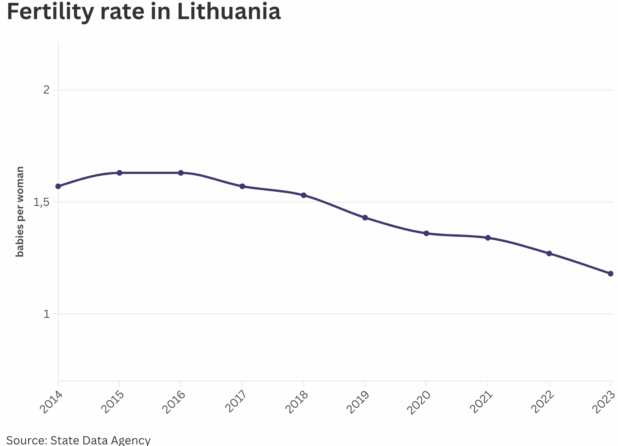
At the time of writing, we have independently confirmed that feminism exists in Lithuania
Low birth rate, huh?
Have you tried giving women more and more and more and more and more? And more and more?
I’ve heard that works, because the birthrate is an economic problem, even though the birthrate is inversely correlated with economic prosperity in every country that isn’t a religious dictatorship.
LRT:
Preliminary statistics show that last year saw the lowest number of births in Lithuania’s history since 1990. Financial strain and cultural changes lead to young people delaying having children or opting for childless families altogether. Can this be reversed?
Karolina Butrimė, a mother of five from Kaunas, jokes that she will receive a state pension when she turns 65. But it’s not all because of her.
“Everyone has been very positive. I remember only one incident [to the contrary]. We were sitting in the park of the Kretinga Winter Garden with children. I was expecting my fifth child, four children were running around me. We were all happy, playing. And a woman walks up and says: All of them are yours? I was so proud: Yes, they are all mine. And she says: What an idiot. And walks away,” Butrimė laughs.
Today, most families opt for one or two children. An increasing number decide not to have kids at all or delay childbearing.
According to preliminary data from the State Data Agency, 18,979 babies were born in 2024, fewer than any other year since 1990.

Not just the lowest since 1990, but lowest since records began
Social Security and Labour Minister Inga Rauginienė says one of the reasons is that people cannot afford to raise children.
“Life is getting more expensive and our young people are calculating: it is extremely difficult for a young family to buy a house. You have to have an adequate amount of income, so young people work more than one job to save up for the first start. This is why family planning is postponed until later,” she tells LRT TV.
While Lithuania offers one of the longest maternal leave periods in the EU and relatively generous benefits, Butrimė notes that money is not the only factor in deciding to have children or not.
…
Lithuania’s fertility rates have been consistently dropping in recent decades. In 2023, the fertility rate stood at 1.18, well below the replacement rate of 2.1.
While Lithuania’s population has slightly increased in recent years, it was due to migration, including returning Lithuanian expatriates.
Boguslavas Gruževskis, sociologist and director of the Centre for Social Sciences, argues that raising the fertility rate will require, first and foremost, educational efforts.
“Formation of value attitudes in the educational system. This is very serious work for the ministries of culture and education – to really show people that the primitive satisfaction of material needs is a very lowly thing,” he tells LRT TV.
A popular Lithuanian song in 2000 had a line saying “there are only three million of us in the world”. Back then, it was an underestimate – Lithuania’s population at the turn of the millennium stood at 3.5 million. Today, it is 2.9 million and, according to projections, could drop to 2 million over the next 50 years.
The whole of Eastern Europe is going extinct.
Quick, we need to give women more and more and more.
Shit’s bad and getting worse

